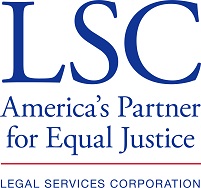Eviction Basics
Are you being evicted? Did your landlord say you must leave? If so, there are things you should know. Landlords are not above the law. In order to evict someone, they must follow the law.
Below are some of the most often asked questions about evictions.
What is an Eviction?
An eviction is a court process a landlord uses to remove a tenant renting a room, apartment, house, or mobile home.
What can the landlord evict me for?
You can be evicted for the following things:
- Not paying rent, late fees, or other amounts owing under the lease,
- Not paying for damages you did to the apartment,
- Violating the lease,
- Bad behavior or criminal activity,
- Your lease is up and the landlord gave you notice to move.
Can my landlord evict me without going to court?
No, unless the landlord claims you abandoned the rental unit, the landlord must get a court order called an "Order of Restitution” before you can be forced to move. This is true even if you owe rent or your lease has ended. The landlord cannot force you out by:
- Changing the locks,
- Removing the front door
- Turning off the utilities
- Or anything else that prevents you from living in your housing.
If your landlord tries any of these things, call the police or local sheriff’s office. Tell the police that the landlord does not have a court order to evict you. If you are told, "Sorry, that is a civil matter," don't give up. Ask for the officer's name and badge number. Then ask to speak to the officer's supervisor. If the police still refuse to help, call Utah Legal Services. You can also give the landlord and the police our Notice to the Landlord flyer. More information is available on our webpage Locked Out Without A Court Order


